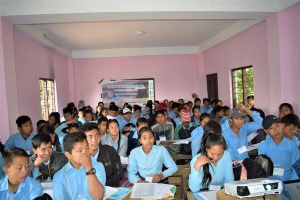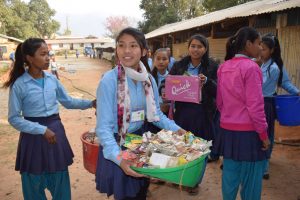Every year Christmas is celebrated commemorating the birth of Jesus Christ, observed primarily on December 25 as a religious and cultural celebration among billions of people around the world. Nepal Jesuit Social Institute planned to celebrate the occasion by inviting special children from Social Service Center and Aruna Bhawan. On Christmas eve, short and full of entertainment program was conducted for the children.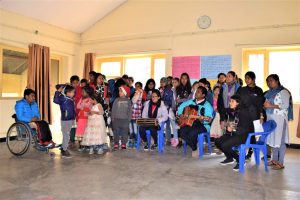
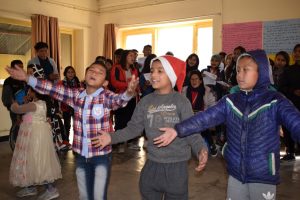
The day started with decoration of Christmas tree and Crib. The special children performed carol and received gift from NJSI. They also danced and sang song. A special surprise for our Director of NJSI was planned and soon after carol, team celebrated his birthday by cutting cake. Later, children watched some dance videos until the food was ready. Finally everyone enjoyed delicious food and the celebration was over.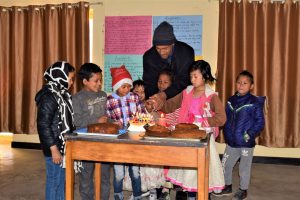
The children were very happy and dancing all around. These charming angels made the day more special. Each of us enjoyed the day to the fullest as it was a double celebration. Smile was constant. It was a beautiful day indeed.

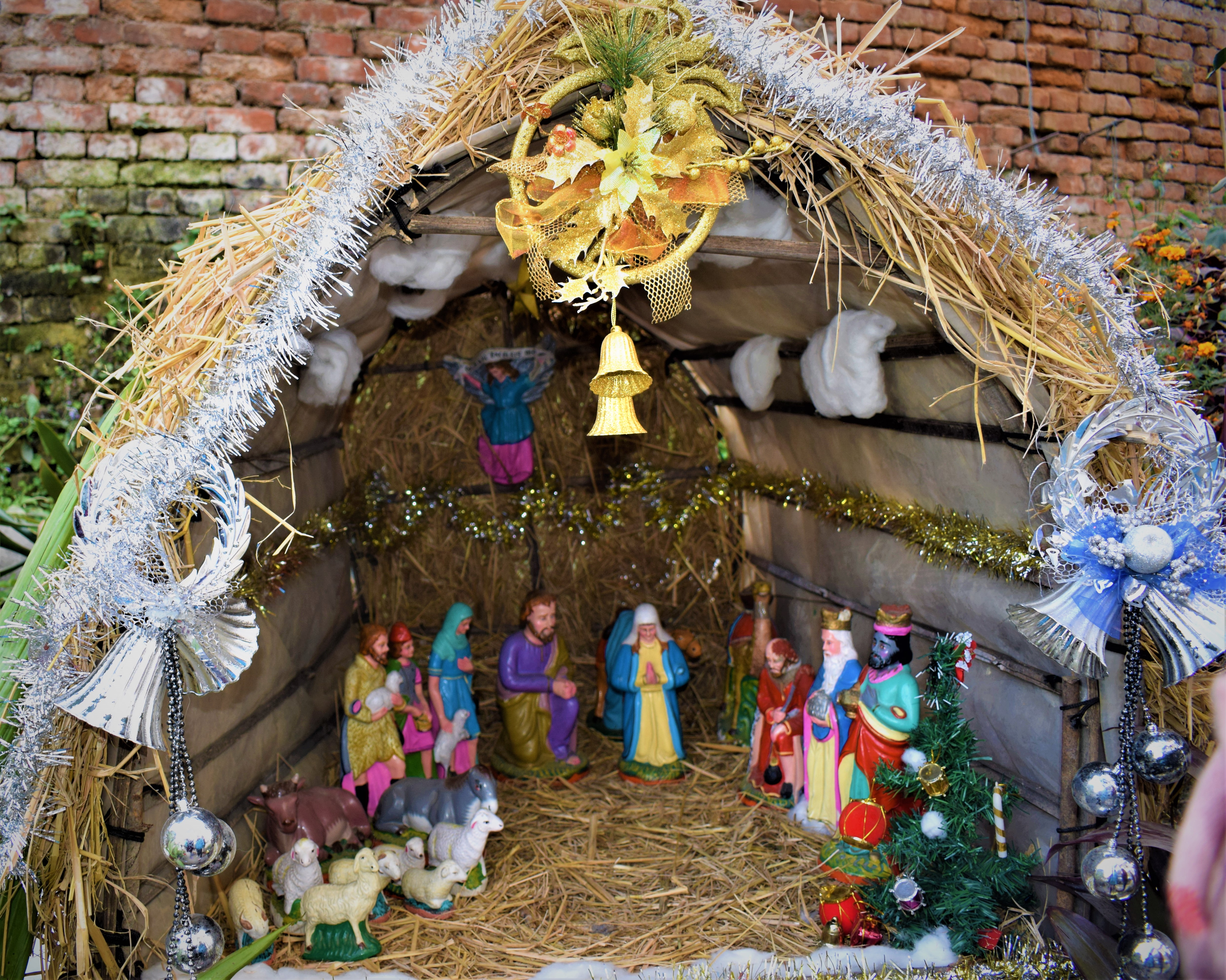
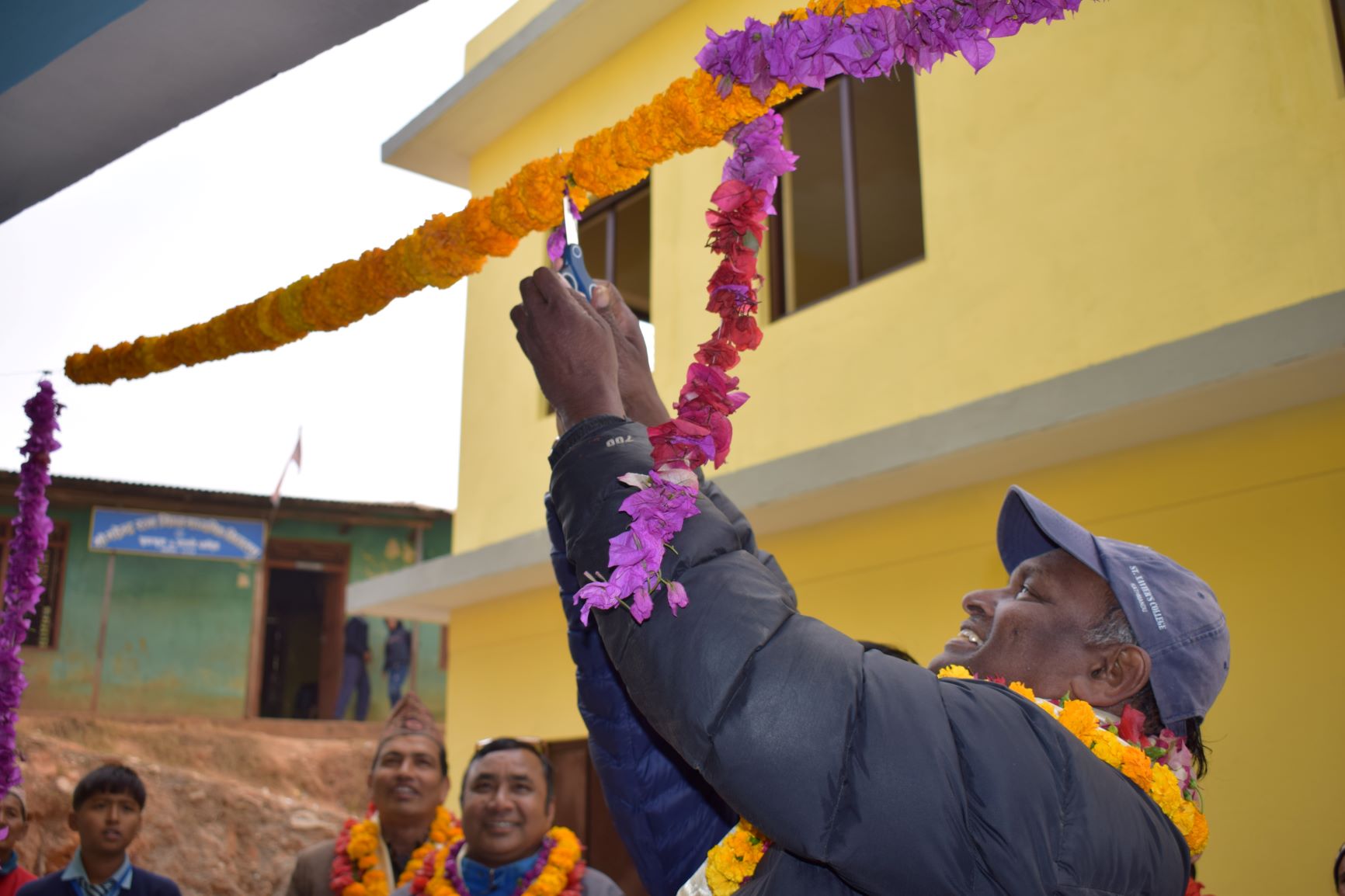

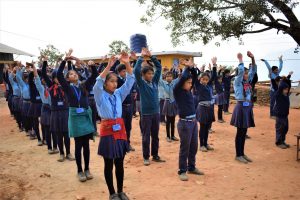
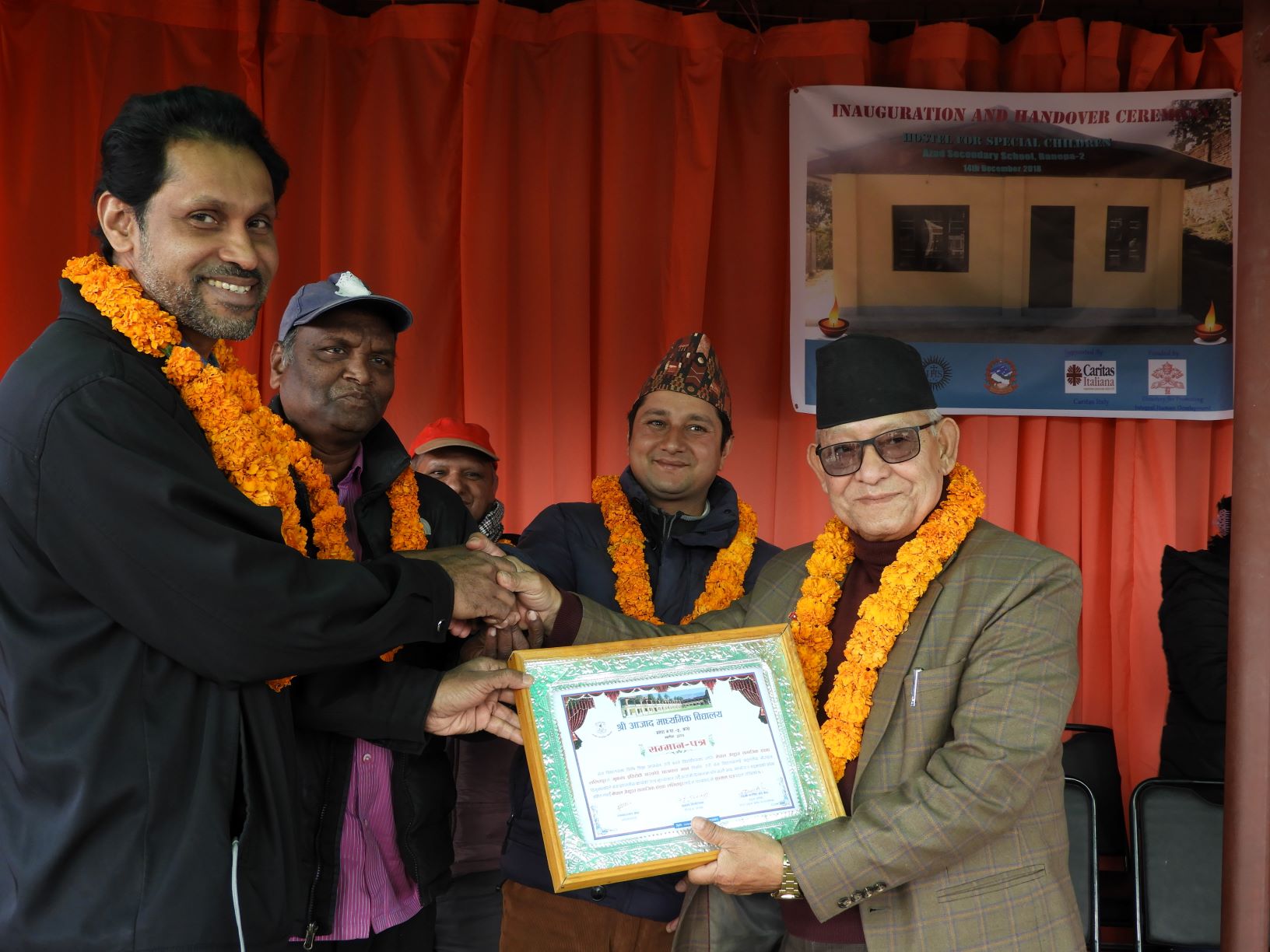
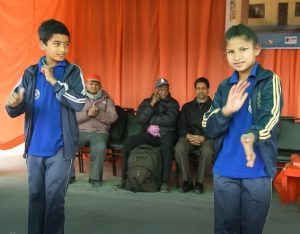
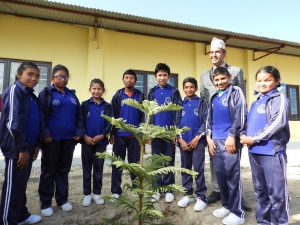 On 14th of December 2018, an official handover ceremony of the hostel in the presence of the beneficiary students, their parents, Azad school students, and govt. officials and teaching staff was conducted. The event continued with speeches from the chairperson of the program, SMC chairperson, Mayor, Fr. Roy, Fr. Arul, the Principal and a guardian. One of the student also expressed vote of thanks using sign language which was pretty impressive. At last the mayor cut the ribbon and NJSI handed over the keys to the school management committee. The best part of the event was two deaf children dancing on an audible song. They learnt the dance step using sign language.
On 14th of December 2018, an official handover ceremony of the hostel in the presence of the beneficiary students, their parents, Azad school students, and govt. officials and teaching staff was conducted. The event continued with speeches from the chairperson of the program, SMC chairperson, Mayor, Fr. Roy, Fr. Arul, the Principal and a guardian. One of the student also expressed vote of thanks using sign language which was pretty impressive. At last the mayor cut the ribbon and NJSI handed over the keys to the school management committee. The best part of the event was two deaf children dancing on an audible song. They learnt the dance step using sign language.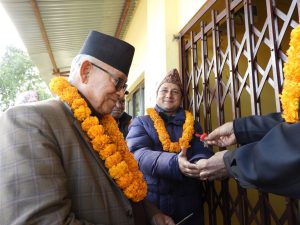 The Students were very happy to have a new hostel and so were the teachers. In their previous hostel, they did not have a good place. They barely had space to move around. But now, after getting a new huge space to live and perform their daily activities, they promised that they will take care of it. Even all the guests who visited the hostel shared their appreciative words towards NJSI.
The Students were very happy to have a new hostel and so were the teachers. In their previous hostel, they did not have a good place. They barely had space to move around. But now, after getting a new huge space to live and perform their daily activities, they promised that they will take care of it. Even all the guests who visited the hostel shared their appreciative words towards NJSI.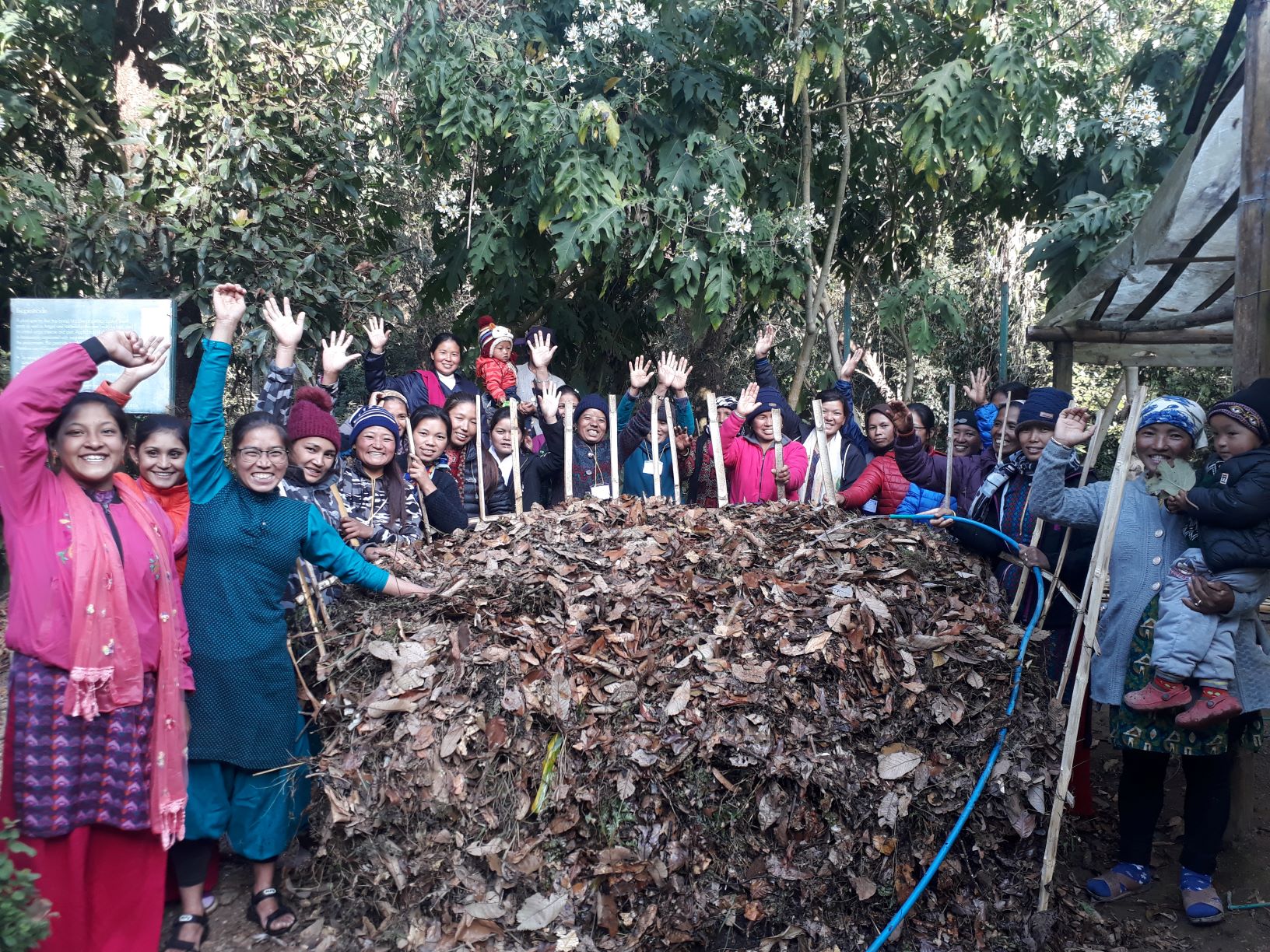
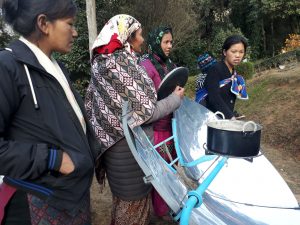
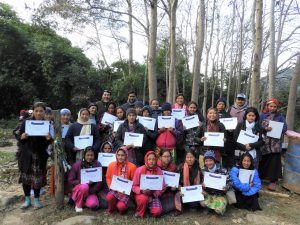 The participants responded positively and they were responsive throughout the training. They were making promises that they will start using the learnt technique soon after they reach the village. Happiness was seen in their faces as they get to learn new things for improving their lifestyle.
The participants responded positively and they were responsive throughout the training. They were making promises that they will start using the learnt technique soon after they reach the village. Happiness was seen in their faces as they get to learn new things for improving their lifestyle.
